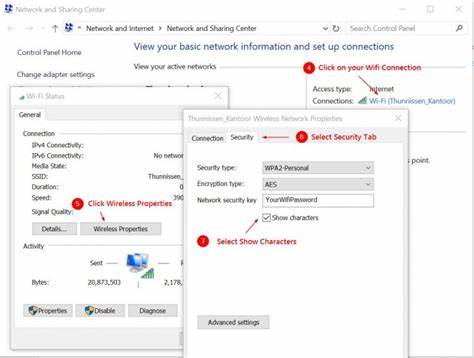A Closer Look at Network Security Key Shielding Your Network from Intruders

In an increasingly interconnected world, network security has become paramount to safeguarding sensitive information and ensuring the smooth operation of organizations. With technological advancements enabling greater connectivity and data sharing, the risk of intrusions and cyberattacks has also multiplied. Network security keys play a crucial role in shielding networks from malicious actors and unauthorized access. This article delves into the importance of network security keys, exploring their significance in protecting networks from intruders, and discussing the various types of keys used to fortify network security. By understanding the key role of these Network Security Key measures, individuals and organizations can better equip themselves in the ongoing battle against cyber threats and secure their networks effectively.
In Today’s Digital Age
Network security has become a paramount concern for individuals and organizations alike. With the increasing frequency and sophistication of cyber attacks, it’s crucial to take a closer look at network security keys and understand their role in shielding your network from intruders.
A Network Security Key
Also known as a Wi-Fi password or passphrase, is a sequence of characters that grants access to a wireless network. It acts as a barrier between authorized users and potential intruders, ensuring that only those with the correct key can connect to the network. By keeping your network secure, you protect sensitive data, maintain privacy, and prevent unauthorized access to your personal or corporate network.
The First Step in Securing Your Network
Is to create a strong network security key. A strong key typically consists of a combination of uppercase and lowercase letters, numbers, and special characters. Avoid using common words or easily guessable patterns, as these can be easily cracked by attackers using brute force or dictionary-based attacks. It’s recommended to use a key that is at least 12 characters long for optimal security.
Once You Have a Strong Network Security Key
Ensure that you change it periodically. Regularly updating your key will help prevent unauthorized access, particularly if someone has managed to obtain your previous key through various means, such as eavesdropping or social engineering. It’s also essential to avoid using the same key for multiple networks, as compromising one network could potentially compromise others as well.
Another Key Aspect
Of network security is enabling encryption protocols. Encryption scrambles the data transmitted between devices on a network, making it unreadable to anyone without the proper encryption key. The most common encryption protocol used in Wi-Fi networks is Wi-Fi Protected Access 2 (WPA2). WPA2 provides robust security by encrypting data and using advanced authentication mechanisms to ensure that only authorized devices can connect.
In Addition To Encryption
It’s crucial to implement other security measures such as enabling firewalls, using Intrusion Detection and Prevention Systems (IDPS), and regularly updating firmware and software on network devices. Firewalls act as a protective barrier between your network and the internet, monitoring and controlling incoming and outgoing network traffic. IDPS helps detect and prevent potential intrusions by monitoring network activities and identifying suspicious behavior or known attack patterns. Keeping devices up to date with the latest security patches and firmware ensures that any vulnerabilities are patched, minimizing the risk of exploitation.
Furthermore Consider Implementing a Guest Network
Separate from your main network. This allows visitors or less trusted devices to connect to the internet without accessing your main network, reducing the potential for unauthorized access to sensitive data. Guest networks can have different security settings, such as a separate network security key or limited access privileges.
Lastly Education and Awareness Play a Significant
Role in network security. Regularly educate yourself and your network users about the importance of strong passwords, safe browsing habits, and the risks associated with connecting to unsecured networks. By instilling a culture of security consciousness, you can create a strong line of defense against potential intruders.
Network security keys are a fundamental component of safeguarding your network from intruders. By creating strong keys, changing them periodically, enabling encryption, and implementing additional security measures, you can significantly enhance the security of your network. Stay informed, stay vigilant, and stay secure to protect your valuable data and maintain your network’s integrity.




























